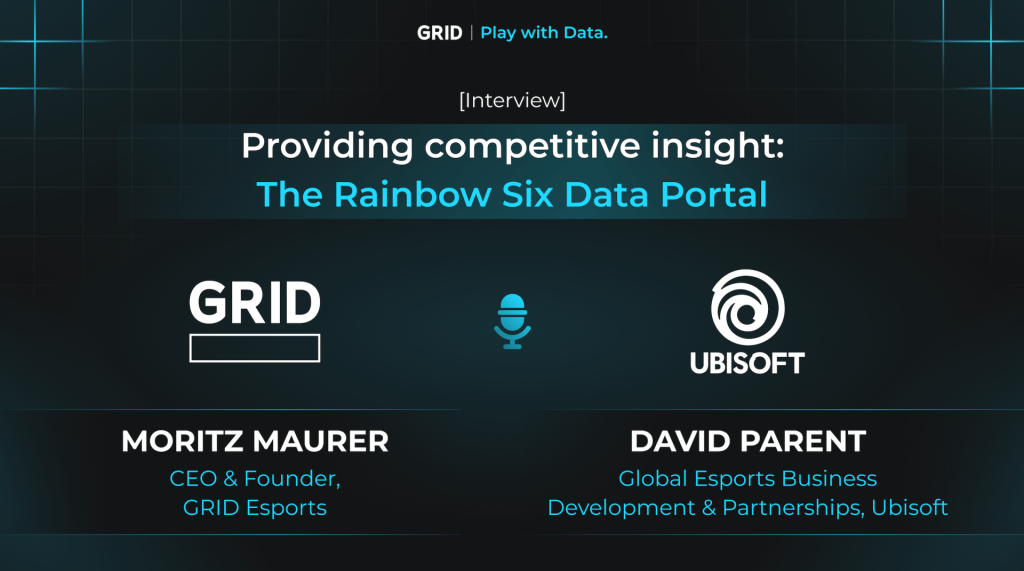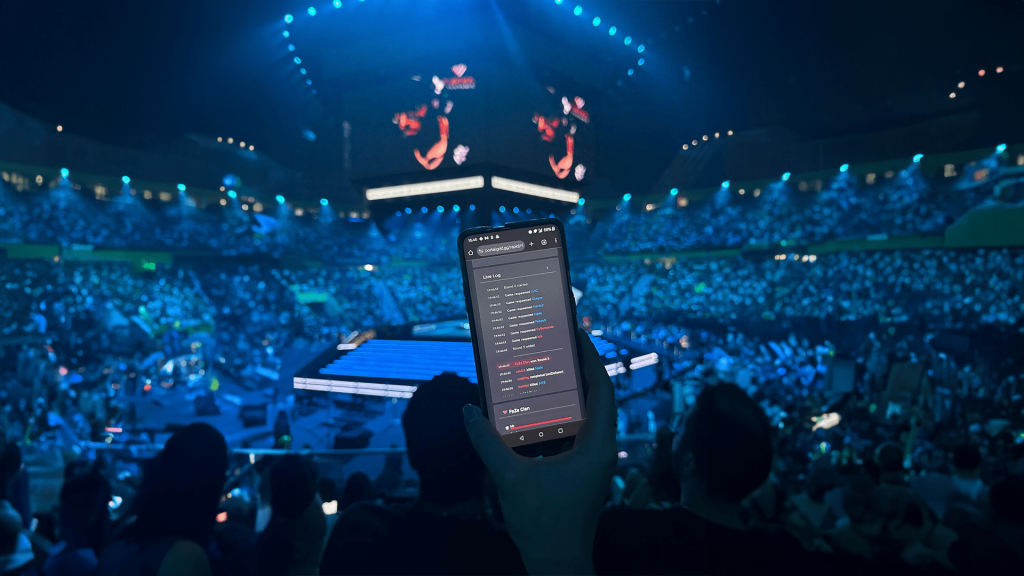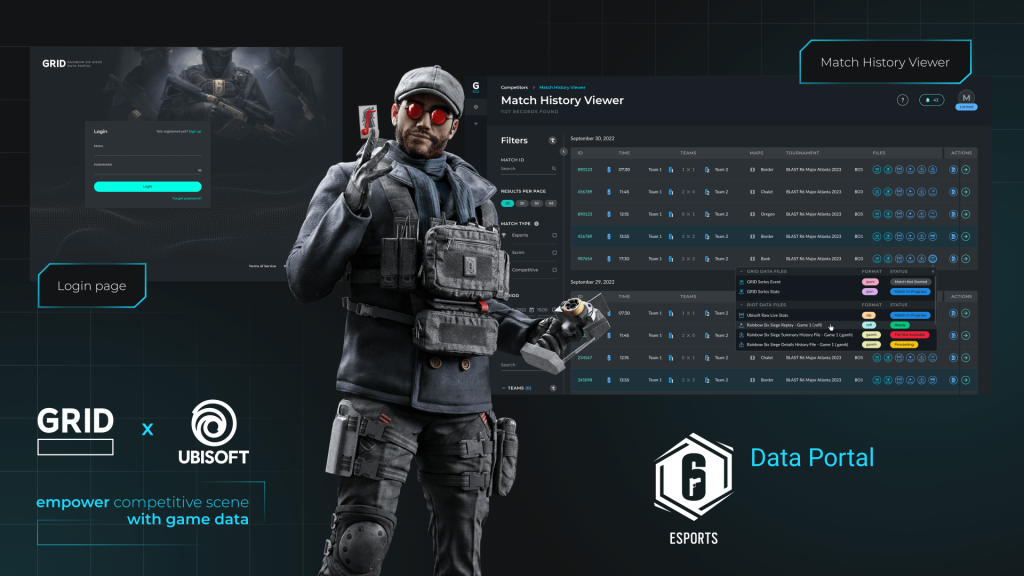
Rainbow Six Siege (R6) esports has undergone significant developments over the last year due to Ubisoft’s renewed investment in the ecosystem’s future.
In November 2023, the publisher entered a multi-year partnership with game data platform GRID to enable access to official esports data — a vital resource that, if utilised correctly, can unlock greater possibilities for esports ecosystems.
In front of thousands of esports fans live at February’s Six Invitational in São Paulo, Brazil — the event announced its upcoming esports roadmap into 2025, featuring Majors in both Manchester (currently underway at the time of publication) and Montreal. Coming off the back of an all-time high esports viewership figure for the title, GRID and Ubisoft’s collaboration took a huge leap with the release of Rainbow Six Data Portal (R6DP) signifying a new era for the esport.
To learn more about this new era, Esports Insider spoke to David Parent, Ubisoft’s Senior Manager Global Esports Business Development & Partnerships and Mortiz Maurer, Founder & CEO of GRID Esports, to discuss the R6DP.
If live game data isn’t collected and utilised correctly, coaching, scouting and analysis becomes an arduous task. Undoubtedly, tier-one teams relying on accurate match data will be put on the back foot before a competitive game is even played. This is why major organisations, akin to traditional sports, have invested in data analysts and divisions dedicated to researching match history to work on strategies and develop gameplay.
The R6DP is aimed at equipping professional competitive teams in the BLAST R6 esports ecosystem with access to official match data, a first for this esport.

“Data has the power to influence how we speak about players, how we evaluate team strategies, even team compositions,” Parent told Esports Insider.
For the last five-plus years, GRID has been providing technological solutions enabling the rights holders to source and distribute live esports data. From its first esports data rights deal with 2018’s FACEIT Major, the platform has gone on to unlock PUBG esports data and become Riot Games’ exclusive data partner for League of Legends and VALORANT. Rainbow Six Siege is the latest title to ‘get on the GRID’, which creates greater data accessibility in the scene with the company’s game-agnostic platform.
Ubisoft provides the newly launched R6DP to BLAST R6 professional teams free of charge, giving them access to historical (as opposed to live) R6 match data. This can be as detailed as which player eliminated who, with what weapon and how much damage at any point in the match.
Competing organisations can search, query and filter data from the same pool of match data, making it easier for teams to jump into analysis either for the first time or as part of their established programme.

R6 is known as an incredibly complex FPS title due to its wide competitive map pool (nine) and selection of operators (over 70), so improved data accessibility can be a game changer for competing teams.
“The starting point for the teams has now just drastically improved because the challenge of sourcing data which had to be addressed before thinking about using it or turning raw data into information, is now resolved,” explained GRID’s Maurer.
“What teams can build on top of this data will give them more flexibility and they can invest where it actually immediately adds value.”
The excitement of the R6DP isn’t just shared by GRID and Ubisoft. Industry talent such as Sonic Esports’ Head Analyst Joe Reyes, Wolves Esports’ Assistant Coach Helbee, Rainbow Six esports host Ghassan ‘Milosh’ Finge all expressed enthusiasm about the project’s announcement.
“You saw all the positive reception on social media because we’ve seen great examples in other leagues — whether it’s sports or esport — of the impact data can have, and it really can be transformative, almost revolutionary,” stated Parent.
With the portal providing deeper analysis opportunities to never-before-available official esports data coming directly from the game servers and not from third-party sources — it raises the question as to which teams could benefit from the tool the most. Parent believes that the portal will ultimately benefit teams no matter how robust their analytical divisions are.
“Teams that are now getting their first access to this data, it’s a need being met,” Parent said.
“On top of that, they’re going to be provided with resources to learn and start to use that data for themselves to increase player evaluation and aid in their performance for the next coming seasons.”
According to GRID, teams without analysts will still be able to interact with the data and explore its value. This is due to its analytics console and tutorials that aim to build up skill sets internally. Meanwhile, data analysts employed by large organisations within R6’s ecosystem get to spend less time tracking data. Many organisations will already be familiar with how to use the data as GRID has created similar portals for VALORANT and League of Legends.
Maurer suggested that some multi-title organisations may have an initial benefit due to previous experience with GRID Data Portals. However, the portal was “designed for anybody who has never engaged with this properly in any way.”
Access to R6 esports data was first introduced at the BLAST R6 Atlanta Major last November through GRID, available exclusively for commercial partners. However, the BLAST R6 Manchester Major will be the first R6 international competition where all participating teams have been able to access and train with the portal’s historical esports data.
With the R6DP tailored exclusively for professional teams, their input is just as important as the resources that GRID and Ubisoft have created. “We work very closely with the users. We want to identify the power users and we want to make it work for them,” highlighted Maurer.
Meanwhile, Parent, like other R6 esports fans, is interested to see how the use of this data portal can impact the competitive landscape. “We’re really looking forward to seeing how putting this data in the hands of teams impacts their play,” he said. “[R6] Siege is such an incredibly complex and tactical game, that I think it really could be on the verge of something really exciting here.”
Both Maurer and Parent echoed that the partnership is about growing and developing the esports scene through greater data capabilities; creating a better playing field for teams is first on their checklist.
Given GRID’s track record across other esports ecosystems and company tagline of ‘Play with Data.’, the solutions will likely not just stop at team developments, as data has the ability to bolster the entire scene — spanning broadcast, fan engagement and commercial opportunities. Time will tell what plans GRID and Ubisoft have in store alongside their data portal.





